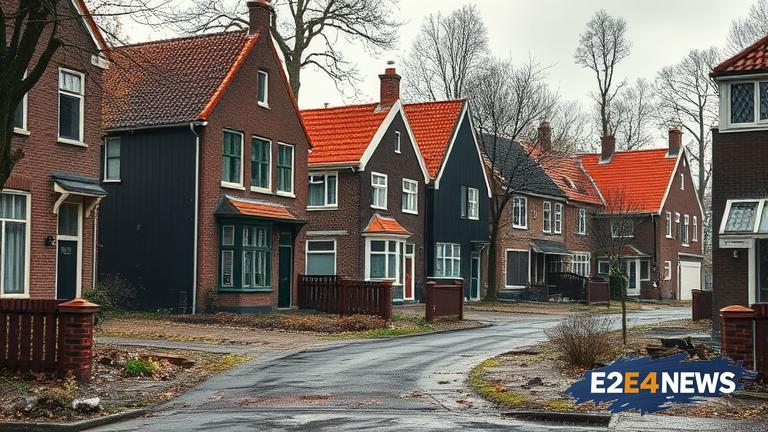A staggering number of Dutch residents, approximately 13.8 million, have expressed their concern over the decline of their neighborhoods. This phenomenon is not limited to specific areas, but rather a widespread issue affecting various parts of the country. The main reasons cited for this deterioration include noise pollution, crime, and a lack of community cohesion. Many residents feel that their neighborhoods are no longer safe, with some even reporting a sense of unease when walking alone at night. The survey also highlighted the issue of litter and graffiti, which is not only an eyesore but also a reflection of the lack of pride and ownership among community members. Furthermore, the decline of local businesses and community centers has led to a sense of disconnection among residents. The survey’s findings have sparked a heated debate about the role of local authorities in maintaining community standards and addressing the concerns of residents. Some have argued that the government should take a more proactive approach in tackling these issues, while others believe that community-led initiatives are the key to reversing the decline. The Dutch government has announced plans to increase funding for community development projects, but it remains to be seen whether this will have a significant impact. In the meantime, residents are taking matters into their own hands, with many organizing community clean-up events and neighborhood watch programs. Despite these efforts, the issue of neighborhood decline remains a complex and multifaceted problem that will require a sustained and collective effort to resolve. The survey’s findings have also raised questions about the impact of urbanization and gentrification on community cohesion. As cities continue to grow and evolve, it is essential to prioritize the needs and concerns of long-term residents. The Dutch government has pledged to work with local authorities and community groups to develop strategies for preserving community character and promoting social cohesion. However, some critics argue that more needs to be done to address the root causes of neighborhood decline, such as poverty and lack of affordable housing. The issue of neighborhood decline is not unique to the Netherlands, with many cities around the world facing similar challenges. Nevertheless, the Dutch government’s commitment to addressing this issue is a step in the right direction. By working together, residents, local authorities, and community groups can help to revitalize and restore their neighborhoods, making them safer, more vibrant, and more cohesive communities. The survey’s findings serve as a wake-up call for policymakers and community leaders to take action and prioritize the needs of residents. It is only through collective effort and a commitment to community development that we can hope to reverse the decline of our neighborhoods and build stronger, more resilient communities. The Dutch government’s plans to increase funding for community development projects are a positive step, but it is essential to ensure that this funding is targeted effectively and addresses the specific needs of each community. By doing so, we can help to create thriving, sustainable communities that benefit all residents. The issue of neighborhood decline is a complex and ongoing challenge that requires a sustained and collective effort to resolve. However, by working together and prioritizing the needs of residents, we can help to build stronger, more cohesive communities and create a brighter future for all.
